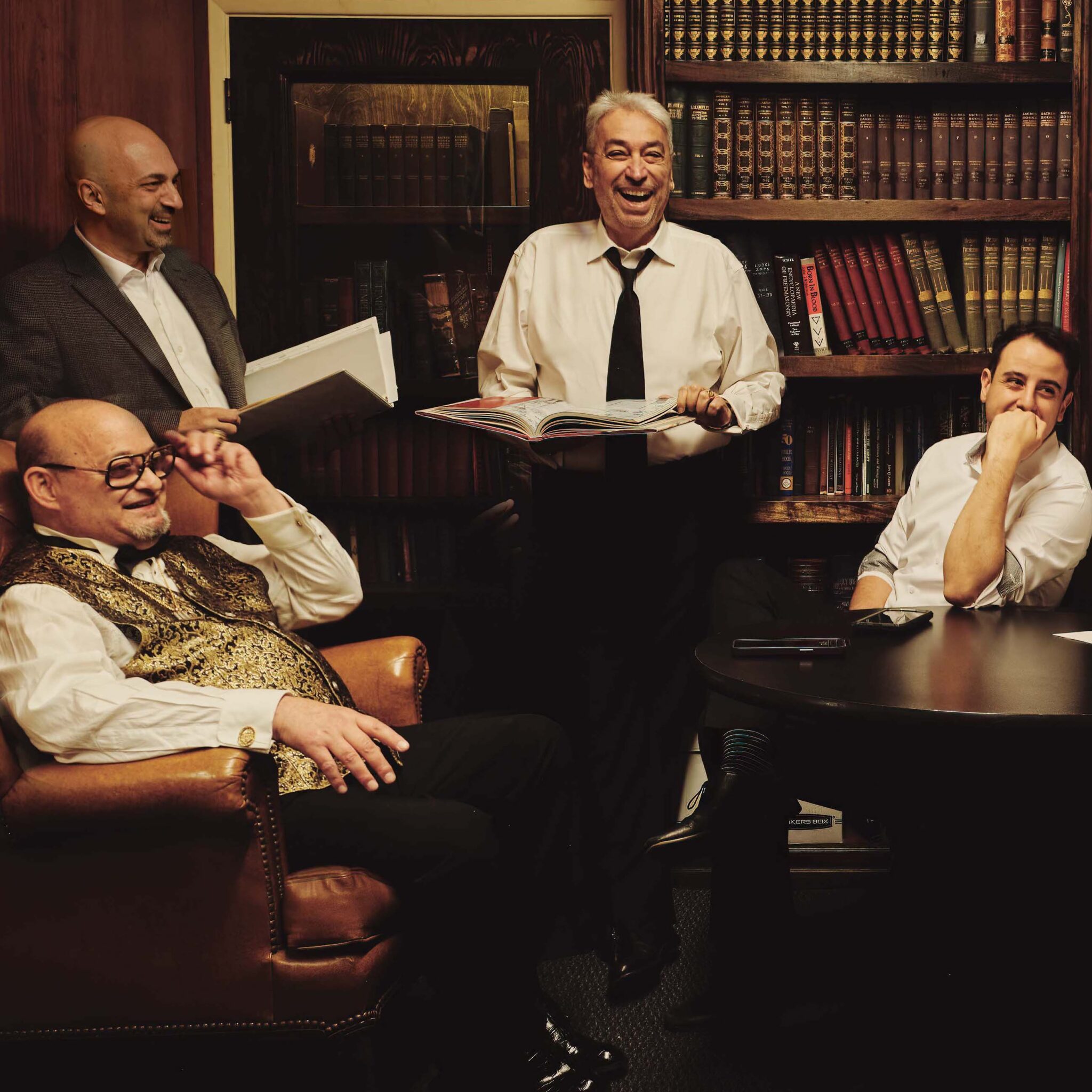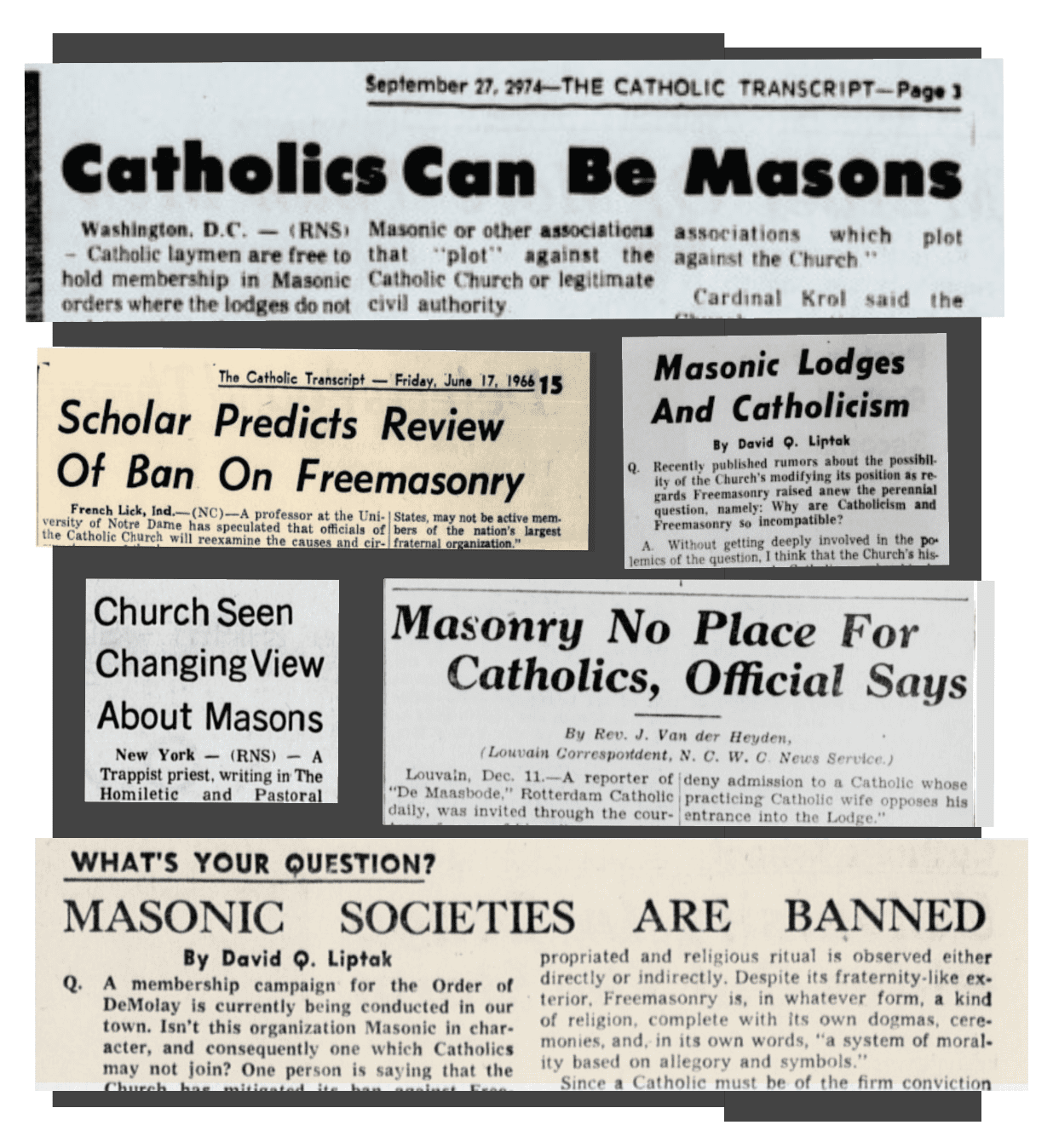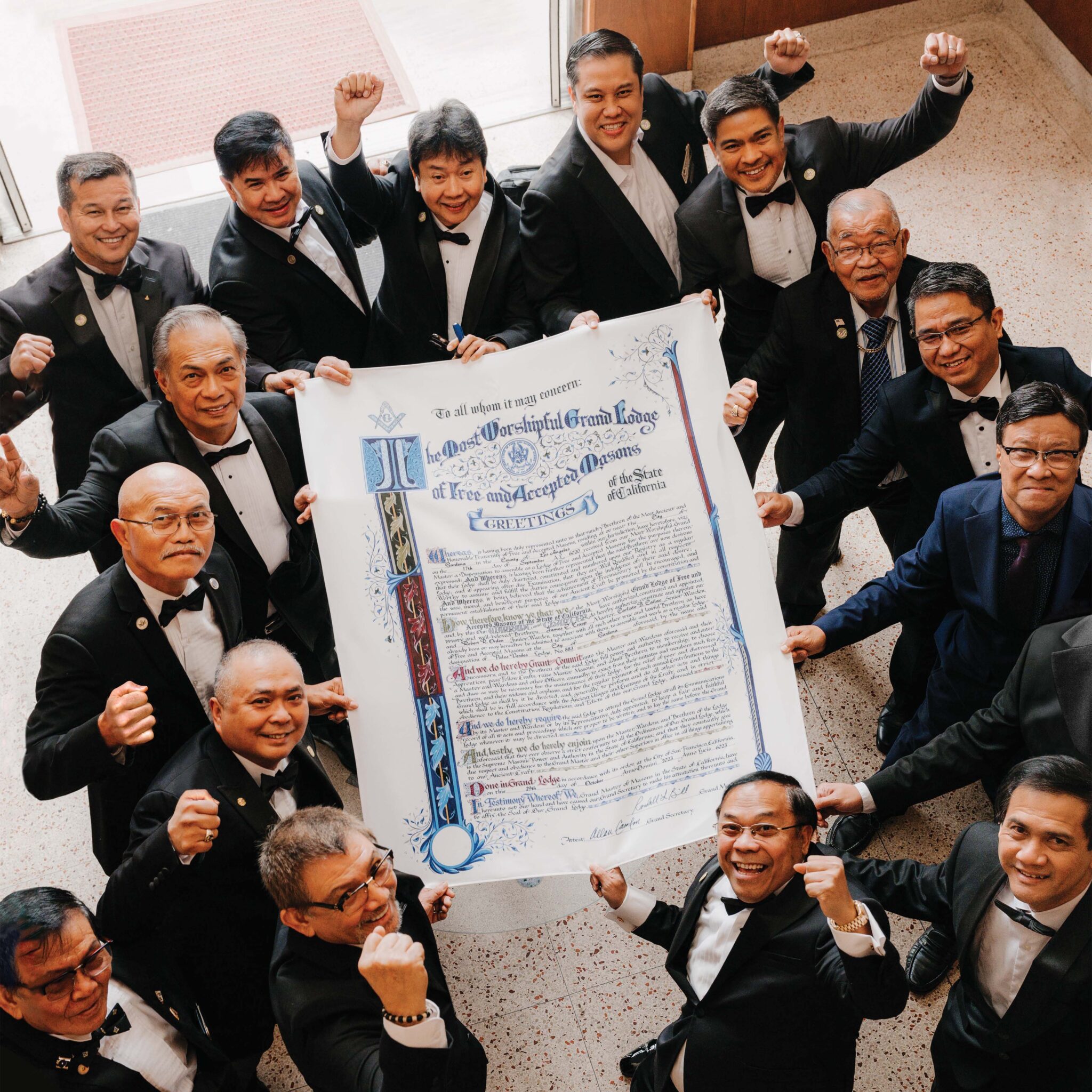
At La France No. 885, a Lodge of Bon Vivants
At La France No. 885, a longstanding legacy of French Freemasonry in California is being carried into the future.
Nearly a quarter-century ago, when David Patterson sent a letter to Archbishop Roger Mahony asking for clarity about whether Catholics could in fact be Masons, he had no idea the hornet’s nest he was kicking. Within months, the matter had reached the highest levels of the church, attracted significant international attention, and led to a popular relitigating of a point of contention that has caused nearly 300 years of confusion both within and outside the fraternity. Patterson, of Wisdom № 202 in Pasadena, is now 91 and retired from his position as president of the Masonic Service Bureau. But he was reminded of his brief brush with fraternal and canonical history last fall, when the Vatican’s Dicastery for the Doctrine of the Faith issued a letter responding to a similar inquiry to Patterson’s, reiterating that “active membership in Freemasonry by a member of the faithful is prohibited … because of the irreconcilability between Catholic doctrine and Freemasonry.” The letter was subsequently covered by Reuters and republished around the world.
Like the emergence of cicada broods, the question of Catholicism’s relationship to Freemasonry has reappeared every decade or so reaching all the way back to Pope Clement XII in 1738.
His initial condemnation of Masonry has been reiterated by at least seven popes over three centuries, largely on the grounds that the fraternity adheres to an idea described as “religious indifferentism,” according to at least one Catholic publication. The most recent missive, issued in November in a letter sent from the dicastery to Bishop Julito Cortes of the Diocese of Dumaguete, in the Philippines, reiterated that membership in a Masonic lodge warrants an automatic excommunication that can only be lifted by the Holy See.
While the dicastery maintained that the church’s position on Masonry has not changed, you’d forgive a layperson for a bit of confusion. Masons in California and around the world make no prohibition against members of any religion, and indeed many Masons have been practicing Catholics. Further, several attempts at clarification from the Vatican over the years have, in the words of Rev. Thomas Anslow, the judicial vicar who responded to Patterson’s letter back in 2000, “muddied the waters” on the matter.
For instance, in the wake of the Second Vatican Council, in the 1960s, the Catholic Church entered a period of significant reform; many bishops anticipated a relaxing of the ban against Freemasonry. Indeed, in 1974, a letter from the Vatican’s prefect for the Congregation of the Doctrine of the Faith seemed to imply that Catholic laymen were able to join Masonic lodges, provided the lodges were not intrinsically anti-Catholic. Rather than name Freemasonry specifically, the letter suggested that Catholics were simply forbidden from joining “associations which plot against the church.”

In 1976, Cardinal Terence Cooke addressed a dedication breakfast for New York Masons and was quoted as blaming the estrangement between the craft and the church on a failure to communicate. “Many of the problems of the modern world are due to such failures,” he said, according to The Pillar, a Catholic news site. “Whatever happened in the past, it should not affect our future.”
That position did not last long. In 1981 (and again in ’83 and ’85), the same Vatican office reversed course, reiterating that the removal of Masonry by name in its Code of Canon Law did not change its position on the fraternity. However, in the U.S. and elsewhere, confusion has lingered.
For all that lack of certainty, the Masonic position has remained straightforward: membership is open to candidates of all faiths. In the Proceedings of the Grand Lodge in 1993, Grand Master Stephen M. Doan briefly addressed the issue, writing:
Masonry is not a religion. Religion deals with salvation, the preparation of our spirit for its return to the God who gave it. Masonry, on the other hand, is about ethics: right and wrong conduct in the here and now. How should we deal with our fellow creatures. Confusion sometimes arises because religion talks about ethics too but its focus is different. Salvation, not ethics, distinguishes religion.… Nowhere in our Masonic ritual is there a promise to our members that they will go to heaven if they are good Masons. Recognized Masonry in this country has never sought to be the means for salvation. It is self-improvement in this world for which we strive as Masons.
Arthur L. Salazar Jr., the current deputy grand master of California, is among those who have felt conflicted about reconciling their interest in the fraternity with Catholic dogma. As he first considered submitting his application to join his lodge, he says, he approached the deacon of his church. “For me, understanding the reasoning, and whether it has relevance in today’s society—or in my life, at least—gave me comfort in knowing that I didn’t see a contradiction with my faith,” Salazar says.
In the end, Catholic Masons are left with a deeply personal question, just as they are with countless delicate matters. Salazar says his deacon presented him with a piece of advice that he passes along to others in a similar position: “He said if I’m ever a member of any organization and feel like it’s not aligned with my moral compass, that’s when it’s time to walk away.”
Top illustration by Edel Rodriguez. Inset image by Pete Ivey.

At La France No. 885, a longstanding legacy of French Freemasonry in California is being carried into the future.

A spate of new Masonic lodges have gone up across the state in recent years. What they are building is reshaping the landscape of California Masonry.

Assisted living and specialized memory care can be complex and intimidating. Here’s what you need to know.